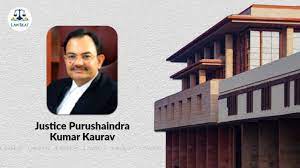Delhi High Court dismisses plea filed by 123 Supertech home buyers to halt banks from charging EMIs

Court dismissed the petitions filed by 123 home buyers seeking directions to banks and financial institutions to not charge EMIs.
The Delhi High Court earlier this week dismissed a batch of writ petitions filed by 123 homebuyers seeking directions to financial institutions not to charge pre-EMIs or full EMIs until Supertech delivers possession of properties to them.
The single Judge bench of Justice Purushaindra Kumar Kaurav refused to entertain the petitions on the ground that the petitioners had alternate remedies under various laws such as Consumer Protection Act, Insolvency and Bankruptcy Code and the Real Estate Regulation and Development Act etc.
“Since the interest of a large number of home buyers is involved in these cases, if they avail the alternative remedies, the same may be considered and decided expeditiously in accordance with the law,” said the judge.
The batch of petitions had been filed to direct banks, financial institutions and direct home loan providers to not charge monthly installments (EMI) from homebuyers in Supertech’s projects till they receive possession of their apartments.
The court opined that it would not be advisable for the court to entertain the writ petitions, given that the facts of the cases were purely contractual in nature. “The nature of the relief, as has been quoted in the preceding paragraphs, which are multiple in nature, are apparently not capable of being decided in summary jurisdiction of the writ court,” the judgment stated.
Court further stated that the 'builder-buyer agreement' contained an arbitration clause mandating that any dispute relating to the agreement be submitted to arbitration.
The petitioners before the court included the Supertech Urban Home Buyers Association (SUHA) Foundation, consisting of 123 home buyers, and other similarly placed people who had taken home loans from banks and financial institutions on the basis of a subvention scheme.
Under the terms of the agreements, the banks were supposed to distribute the approved amount straight to the builder, and the builder was responsible for paying the pre-EMIs or full EMIs on the approved loan. Banks and SUHA Foundation had separate agreements. Around December 2018, the builder allegedly began defaulting on payments of the pre-EMIs or full EMIs, and the financial institutions started sending payment reminders to the association's members.
Supertech argued that the dispute arose out of an agreement and it was completely contractual in nature, therefore, it was not maintainable.
The petitioners, on the other hand, submitted that writ petitions were maintainable even against private sector banks if there existed a dereliction of statutory duty. According to them, writ jurisdiction was extensive and was meant to remedy injustice wherever found.
Court said, “However, the question of “interminability” is entirely within the realm of discretion of the High Courts. As has been noted, writ remedy being discretionary, despite being petition maintainable, the same may not be entertained by the High Court for many reasons.”
Finding that the petitioners had access to alternative remedies, the judge refused to entertain the petitions and dismissed them.
Case Title: Supertech Urban Home Buyers Association (SUHA) Foundation vs. Union of India & Ors.
